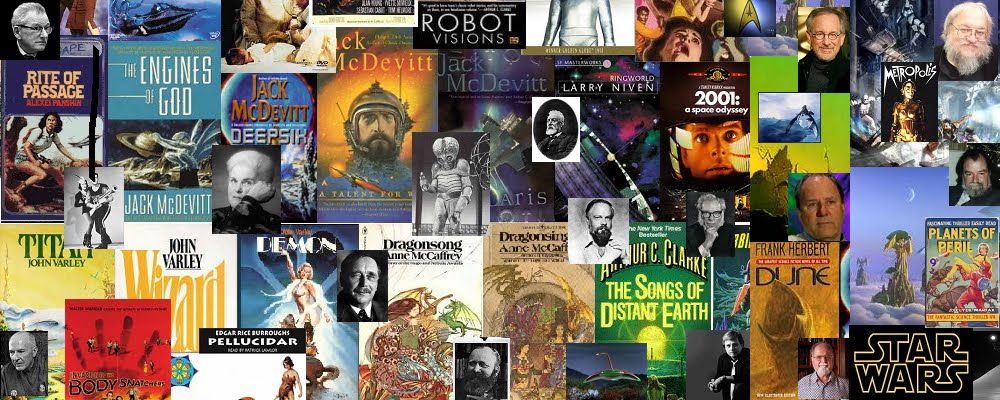When science fiction icon Harry Harrison died earlier this year (August 12, 2012), a great satirical voice was lost. Harrison's brilliant and funny series of novels based on his character James Bolivar DiGriz, otherwise known as the Stainless Steel Rat, inspired a generation of humorous science fiction and fantasy writers, including the estimable Christopher Stasheff. Besides his wickedly funny novels, Harrison also wrote serious science fiction (Make Room! Make Room!, the inspiration for the film Soylent Green) and was a remarkable anthologist.
The Jupiter Legacy is a rather dated, but fun science fiction novel based around the theme of infection arriving from space. Although the original, Plague from Space, was published before Andromeda Strain, it never achieved the status of the latter and was, in fact reissued in 1982 as The Jupiter Legacy to take advantage of the popularity of Michael Crichton's novel.
Harrison's novel contains nothing of the serious and suspenseful Andromeda Strain. It is particularly dated in terms of its treatment of women and technical knowledge, but that might be because Harrison intended the book to be funny. When I started reading, I assumed it was a serious treatment of the subject, but as I read through it, I found myself laughing at quite a bit, so I ended up concluding that it was a satire and decided to live with that.
The story is centered around Sam Bertolli, an intern at Bellevue in New York City at some unspecified time in the future. The Pericles, a rocket returning from Jupiter, exhibits strange behavior and sets down in the middle of Kennedy Airport. Sam is dispatched to treat the survivors who weren't squashed when it set down. He is teamed up with Dr. Nita Mendel, a pathologist from the hospital who has experience with germs. "Her hair was a natural red that bordered on russet, and even the shapeless white lab smock could not conceal the richness of her body."
Some of the funny characters in the book include Killer Domingues, Sam's ambulance driver, and General "My friends call me Cleaver" Burke. The dialogue is crisp and fast, the book moves very quickly and the humor is subtle.
It's a good romp, but be prepared for a real 1950's feel to the book, including bugaboos from Jupiter!
The Jupiter Legacy is a rather dated, but fun science fiction novel based around the theme of infection arriving from space. Although the original, Plague from Space, was published before Andromeda Strain, it never achieved the status of the latter and was, in fact reissued in 1982 as The Jupiter Legacy to take advantage of the popularity of Michael Crichton's novel.
Harrison's novel contains nothing of the serious and suspenseful Andromeda Strain. It is particularly dated in terms of its treatment of women and technical knowledge, but that might be because Harrison intended the book to be funny. When I started reading, I assumed it was a serious treatment of the subject, but as I read through it, I found myself laughing at quite a bit, so I ended up concluding that it was a satire and decided to live with that.
The story is centered around Sam Bertolli, an intern at Bellevue in New York City at some unspecified time in the future. The Pericles, a rocket returning from Jupiter, exhibits strange behavior and sets down in the middle of Kennedy Airport. Sam is dispatched to treat the survivors who weren't squashed when it set down. He is teamed up with Dr. Nita Mendel, a pathologist from the hospital who has experience with germs. "Her hair was a natural red that bordered on russet, and even the shapeless white lab smock could not conceal the richness of her body."
Some of the funny characters in the book include Killer Domingues, Sam's ambulance driver, and General "My friends call me Cleaver" Burke. The dialogue is crisp and fast, the book moves very quickly and the humor is subtle.
It's a good romp, but be prepared for a real 1950's feel to the book, including bugaboos from Jupiter!


